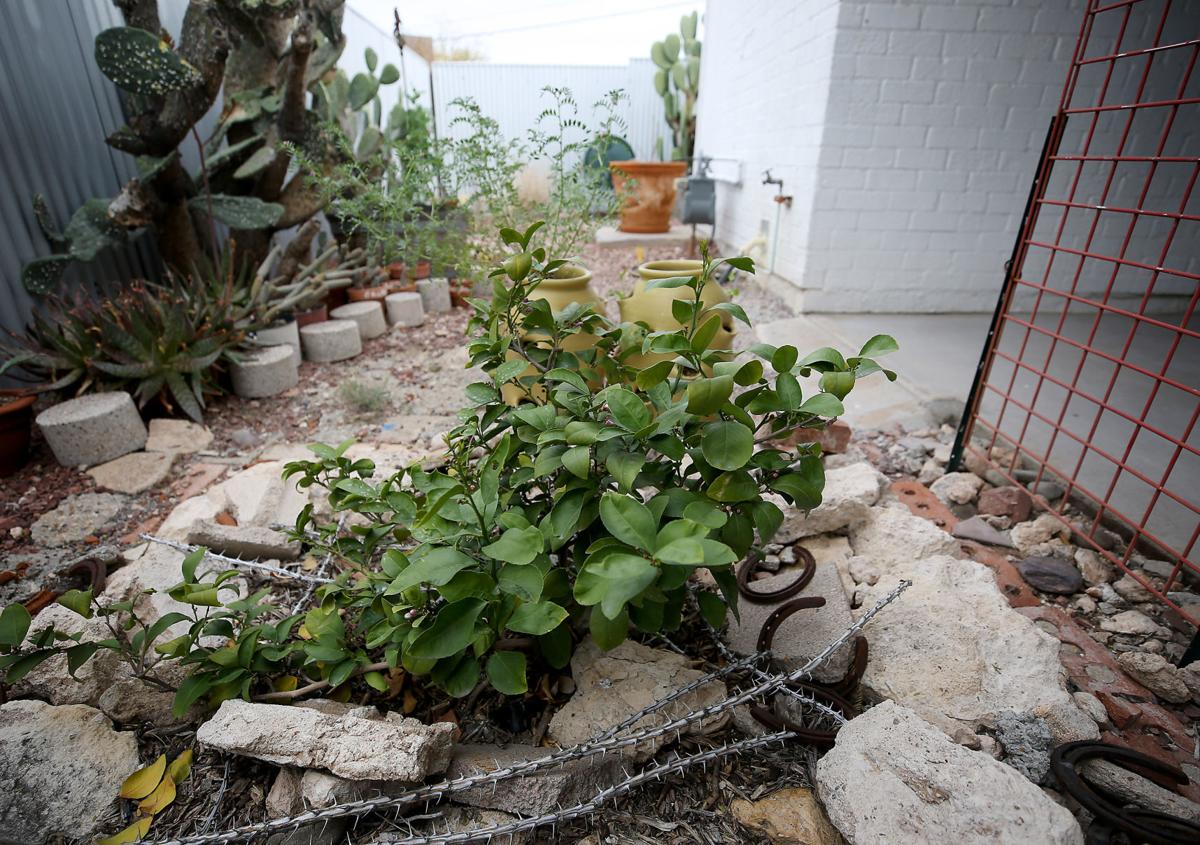In our desert, water is precious. Many gardeners look for ways to reduce their city or well water use, including rainwater harvesting and planting drought-tolerant plants.
Did you know that you can also use some of your home’s wastewater to water your garden? Nearly a third of the waste water in your home comes from showers, bathroom faucets, and laundry, and is called grey water. Water from toilets, dishwashers, and kitchen sinks is considered black water and cannot be used for irrigation.
Grey water can be reused on most plants. The only exception is that you shouldn’t use it for your vegetable garden; however, it is safe to use grey water on any tree, including fruit and nut trees, as well as ornamental plants. Because grey water contains detergents, bacteria, bits of clothing, and other waste, you cannot store it in tanks like rainwater; it would become foul-smelling and a site for bacterial and algae growth. It must be drained into your soil within 24 hours of being produced.
For a simple system, you may want to build some basins around your plants to hold the water and keep it from causing any erosion in your yard. If you need a more complex system, you may choose to use a surge tank and pump, which stores the water very briefly and pumps it out into your yard at a rate which won’t cause erosion. This type of system can also be connected to drip irrigation, which is the most efficient way to water your plants. Keep in mind that if your grey water setup uses a pump of any sort, it must have a reduced pressure assembly to prevent the grey water from backflowing into the main water supply.
Once you have a system installed, you will need to monitor the ingredients in the soaps, shampoos and detergents you use to avoid harming your plants. Brad Lancaster has a great guide on which ingredients to avoid on his Rainwater Harvesting website. Some ingredients to avoid putting into your grey water include bleach, peroxide, borax, parabens, and petroleum products. To keep these substances out of your garden, make sure any grey water hookup in your laundry room has the option of diverting the wastewater into the sewer so you can run the occasional bleach load if needed without harming your plants.
The City of Tucson offers grey water harvesting rebates to help you pay for the changes to your plumbing. First, you will need to take a free two hour class with Watershed Management Group which will teach you about correctly setting up, using and maintaining your grey water system. You can then set the system up yourself, or hire someone. If you want to start with something easy, Watershed Management Group has laundry-to-landscape kits as well as classes to help you install them; they can also install the kits for you.
If your system is connected to drip irrigation, you will need to check it a couple of times per year to look for clogging. There are plenty of local guides available to help you with the installation and use, including a thorough guide from the City of Tucson as well as lots of helpful information on Brad Lancaster’s Rainwater Harvesting website.





